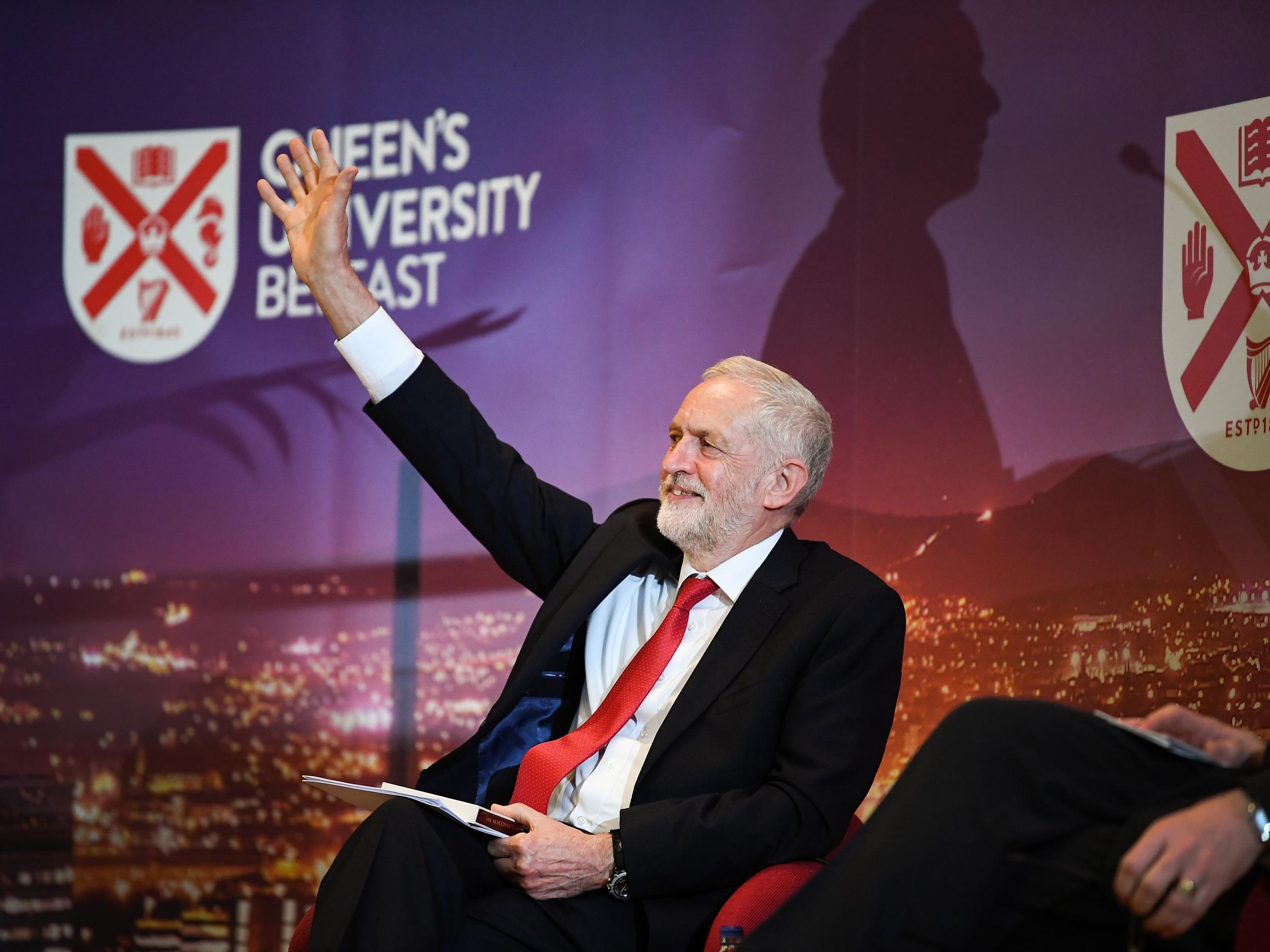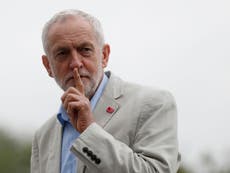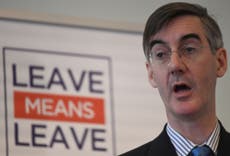The next general election should be fought between Jeremy Corbyn and Jacob Rees-Mogg – here's why
The country has had enough of insipid politicians who are more intent on power than anything else. It wants – and badly needs – a leader who actually stands for something

Of all the realistic potential options, not only would a general election contest between Jeremy Corbyn and Jacob Rees-Mogg be the most engaging and entertaining, it is the contest this country needs.
For too long, legitimate political views have gone unrepresented. When Tony Blair brought his third-way politics to the Labour Party and, with them, occupied the middle ground of politics, those with a more socialist worldview found they had little voice.
Electoral pragmatism meant such views were suppressed wherever possible. The left of the party was no-platformed, overlooked, sometimes even mocked.
It went further. The Labour Party then did things few British socialists would countenance. Where they wanted no overseas military intervention, Blair went to war. Where they wanted equal economic opportunity, Gordon Brown presided over rampant corporate expansion, student debt and a boom in house prices that created a generation of people who now can’t afford a home.
The Labour Party was born in socialism. There are many people in this country who hold those socialist values dear. They must have a political voice. But they were, effectively, disenfranchised. This has led to anger and, in some cases, extremism.
Seeing the success of Tony Blair, and the unpopularity of Thatcherite politics in the 90s and early 00s, the Tories went on their own mission to occupy the middle. They needed to do this, they concluded, if they were to win an election and so we ended up with David Cameron and George Osborne.
Just like the socialists on the left of the Labour Party, those on the right of the Conservative Party were ignored, dismissed or smeared. Traditionalists who questioned gay marriage were “backward”. Activists were “swivel-eyed loons”. Eurosceptics were xenophobes and racists.
Like Brown before him, Osborne pursued economic policies which betrayed the traditional values of the Conservative Party. Professing austerity, he added over half a trillion pounds to the national debt (according to some measures he doubled it). The tax code doubled under his tenure (he set up the Office of Tax Simplification with opposite goal in mind).
Framed in equality’s name, his raised stamp duties brought the upper end of the housing market to a standstill, while help-to-buy propped up house prices at the lower end and became subsidy for building companies.
No matter what your opinion of these measures, they are not in the low tax, small state, minimum economic intervention traditions of the Conservative Party. Osborne was more social democrat than Tory.
Unrepresented and ignored, on both sides, anger and frustration has grown to cacaphonic levels.
But in Jeremy Corbyn the left finally has its voice, and in Jacob Rees Mogg, so does the right. That is why both are so popular among their supporters. Whether you agree with them or not, these are politicians with conviction. Two leaders with clear and distinct political philosophies. It’s time the voices they represent were heard.
Many of the issues that are dividing the country can be frankly discussed and debated – with such opposing views, how engaging these would be. Then the public can vote and democracy can decide. I’m convinced that, with so much political anger in the UK at present, a proper debate followed by a democratic decision could resolve a great deal.
Where is Theresa May’s philosophy? What does she stand for? I struggle to understand because she seems incapable of offering any opinion on anything. That is not leadership. That is expediency. She has her soundbites, but they are as meaningless as the tropes of a motivational speaker.
Brexit, whatever you may think of it, saw the largest voter turn-out in British history with, in terms of numbers, the greatest majority. A leader standing for Brexit should have walked the last general election, but May blew it. That election, if nothing else, was a resounding rejection of centrist vapidity.
The country has had enough of insipid politicians who are more intent on power than anything else, who will base their policies on the findings of focus groups, whose words are determined by political expediency rather than principle. It wants – and badly needs – a leader who actually stands for something. The time has come for a proper election between left and right.
An election fought with genuinely different political ideologies at stake will engage the public in a way that no election fought over who best occupies the middle can. There won’t be the usual voter apathy.
Whether left or right, statist or libertarian, voter or bystander, surely we can agree on this: in the next general election let’s have the honourable member of the 19th century vs the honourable member of the 1970s. That’s what this country wants and needs.
Dominic Frisby is a financial writer. He is author of the books Bitcoin: the Future of Money? and Life After The State. Dominic also co-wrote the documentary Four Horsemen. He will be taking his Financial Gameshow to the Edinburgh Festival this August



Join our commenting forum
Join thought-provoking conversations, follow other Independent readers and see their replies